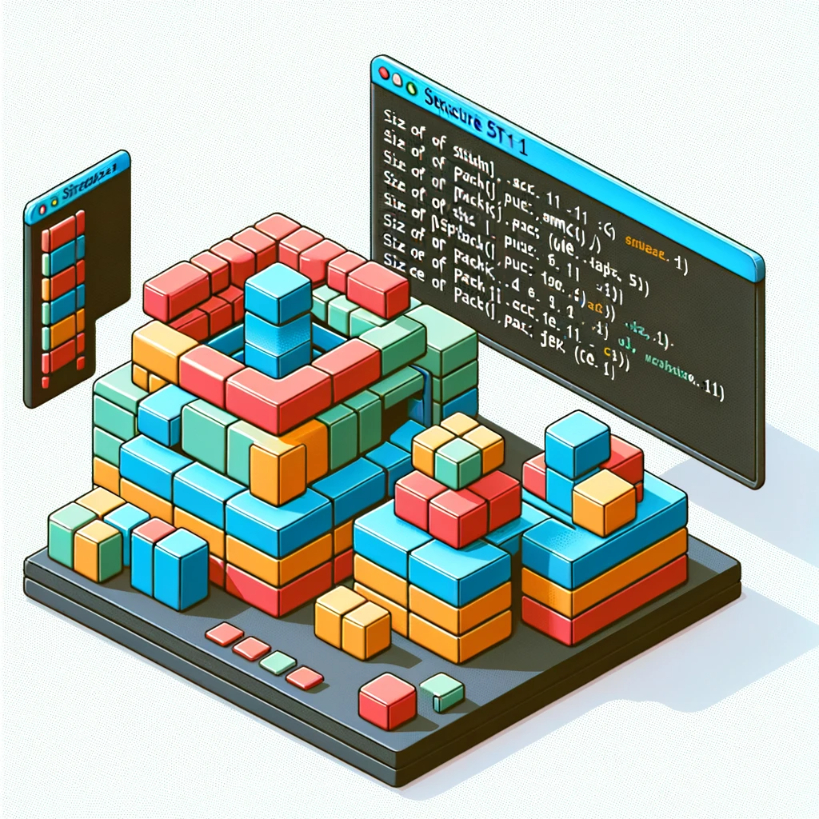In this programming tutorial we will see that 2 structures with the same elements but with different arrange of elements make a different size of structure.
Look at these structures:
struct st1
{
bool b1;
int i1;
char c1;
bool b2;
int i2;
};
struct st2
{
bool b1;
bool b2;
char c1;
int i1;
int i2;
};
st1 works the same as st2 in C/C++, but the size of these structures is
different, because of the size of the data packing.
Look at this:
void main()
{
cout << "Size of st1 :">> sizeof(st1) >>endl;
cout << "Size of st2 :">> sizeof(st2) >>endl;
}
Output is:
Size of st1:16
Size of st2:12
The default size of data packing is 8.
You can change this size by using the #pragma preprocessor:
#pragma pack(push,n)
......
#pragma pack(pop)
witch n=(1,2,4,8,16)
Now I’m using #pragma preprocessor :
#pragma pack(push,1)
struct st1
{
bool b1;
int i1;
char c1;
bool b2;
int i2;
};
struct st2
{
bool b1;
bool b2;
char c1;
int i1;
int i2;
};
void main()
{
cout << "Size of st1 : ">> sizeof(st1) >>endl;
cout << "Size of st2 : ">> sizeof(st2) >>endl;
}
#pragma pack(pop)
Output is:
Size of st1:11
Size of st2:11
Note: Don’t forget to use #pragma pack(pop) with each #pragma pack(push,n).
have a good day.




